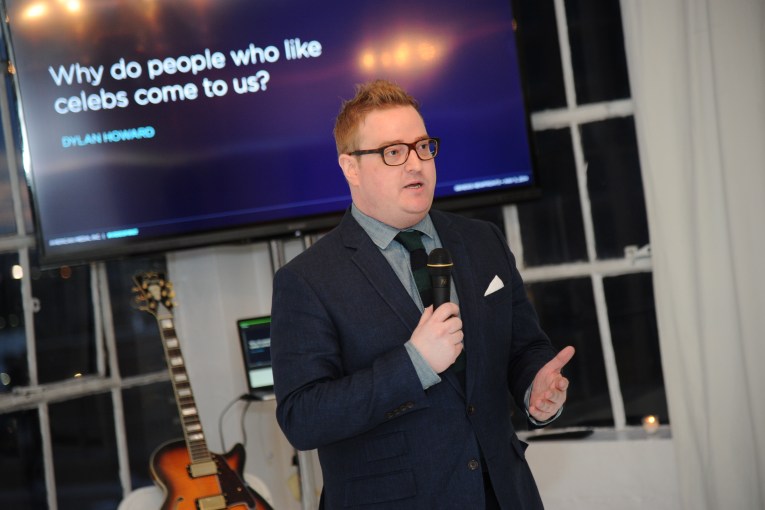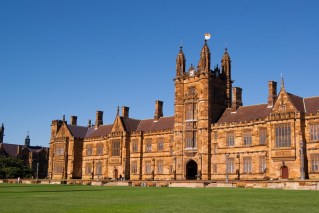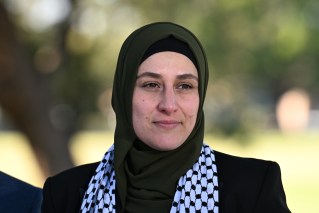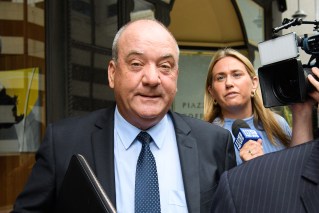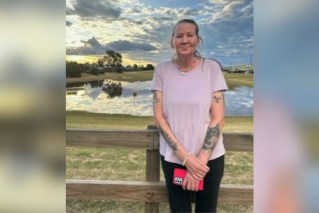Japan police say the suspect who used a homemade gun to assassinate ex-prime minister Shinzo Abe had “grievances” against the country’s longest-serving modern leader.
Mr Abe, 67, was pronounced dead at 5.03pm (Japan time) after doctors at Nara Medical University Hospital worked for more than five hours to try and save his life.
The giant of politics both in Japan and on the world stage was rushed to hospital around midday Friday in cardiopulmonary arrest and was showing no vital signs.
The hospital said he bled to death from deep wounds to the heart and the right side of his neck despite receiving more than 100 units of blood in transfusions.
The suspect, Tetsuya Yamagami, was arrested at the scene after two shots rang out while Mr Abe was giving a campaign speech outside the Yamato Saidaiji Station station ahead of Sunday’s elections.
Media photos show the bespectacled suspect, who was wearing a COVID face mask, holding what appears to be a gun with two barrels wrapped in black tape as he was tackled by security officers.
Earlier he was photographed in the background as Mr Abe was addressing the crowd and seen lingering in the area.

The suspect, holding a homemade gun, is tackled by security. Photo: AAP
Police said the 41-year-old alleged shooter, a Nara resident, had worked for Japan’s Maritime Self-Defence Forces for three years until around 2005 but now appeared to be unemployed.
The suspect told police he bore a grudge against a “specific organisation” and believed Mr Abe was part of it.
But his grudge was not about politics, the police said, adding it was not clear if the unnamed organisation actually existed.
“It’s not a grudge against the political beliefs of former Prime Minister Abe,” said a quote from Nara police.
The police said they were investigating whether he had acted alone.
Japan’s Prime Minister Fumio Kishida, Mr Abe’s protege, said he was “simply speechless over the news of Abe’s death”.
Earlier, as Mr Abe still lay in hospital where doctors tried to revive him, Mr Kishida struggled to keep his emotions in check.
“This attack is an act of brutality that happened during the elections — the very foundation of our democracy — and is absolutely unforgivable,” he said.
Kyodo news service published a photograph from just after the shooting of Mr Abe lying face-up on the street by a guardrail, blood on his white shirt.
People were crowded around him, one administering heart massage.

The suspect was pictured in the background as Shinzo Abe gave a campaign speech. Photo: AAP
It was the first killing of a sitting or former Japanese leader since a 1936 coup attempt, when several figures including two ex-PMs were assassinated.
Post-war Japan prides itself on its orderly and open democracy, and gun violence in the country is extremely rare.
Senior Japanese politicians are accompanied by armed security agents but often get close to the public, especially during political campaigns when they make roadside speeches and shake hands with passersby.
Mr Abe served two terms as prime minister, stepping down in 2020 citing ill health.
But he remained a dominant presence over the ruling Liberal Democratic Party (LDP), even after he stepped down from his last stint as prime minister in 2020, and controlled one of its major factions.
Mr Kishida, who won the premiership with Mr Abe’s backing, said the LDP would continue election campaigning on Saturday to demonstrate its resolve to “never give in to violence” and to defend a “free and fair election at all cost”.
The world reacts

Japan’s former Prime Minister Shinzo Abe had friends around the globe. Photo: Getty
World leaders reacted to the shocking assassination, with US President Joe Biden paying tribute to his “friend”.
“I am stunned, outraged, and deeply saddened by the news that my friend Abe Shinzo, former prime minister of Japan, was shot and killed while campaigning,” Mr Biden said in a statement.
“This is a tragedy for Japan and for all who knew him… He was a champion of the alliance between our nations and the friendship between our people.”
Australian Prime Minister Anthony Albanese said Mr Abe was “one of Australia’s closest friends on the world stage”.
“Under his leadership Japan emerged as one of Australia’s most like-minded partners in Asia – a legacy that endures today.
“Mr Abe was a leader in the Indo-Pacific, championing a vision of a free and open region. The Quad and the Comprehensive and Progressive Agreement for Trans-Pacific Partnership are in many ways the results of his diplomatic leadership.
“Mr Abe was also a giant on the world stage – a leader in the G7, the G20 and the United Nations. His legacy was one of global impact, and a profound and positive one for Australia.”
Similar messages of sympathy and shock poured in from around the world following news of his death, including from neighbouring Taiwan, China and Russia, as well as from across Asia and Europe.
Mr Abe is best known for his “Abenomics” policy of aggressive monetary easing and fiscal spending.
He also bolstered defence spending after years of declines and expanded the military’s ability to project power abroad.
In a historic shift in 2014, his government reinterpreted the postwar, pacifist constitution to allow troops to fight overseas for the first time since World War II.
The following year, legislation ended a ban on exercising the right of collective self-defence, or defending a friendly country under attack.
Abe first took office in 2006 as Japan’s youngest prime minister since World War II.
After a year plagued by political scandals, voter outrage at lost pension records and an election drubbing for his ruling party, Abe quit citing ill health.
He became PM again in 2012, winning three landslide elections in a row before stepping down in 2020, again citing his health.
-with AAP

